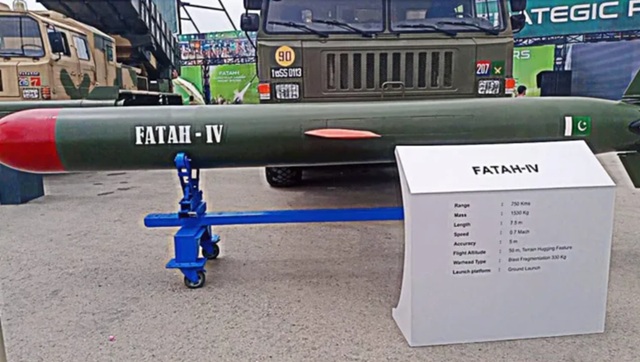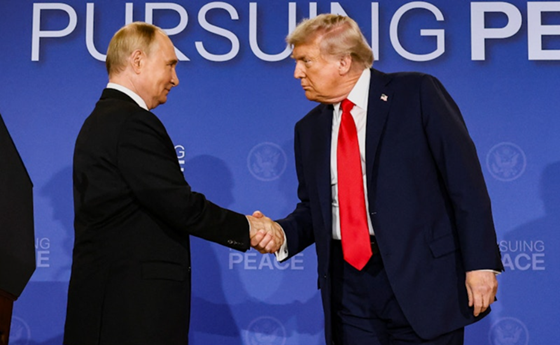Islamabad, August 21, 2025 – In a bold move to bolster its military capabilities, Pakistan has unveiled the Army Rocket Force Command (ARFC) and the Fatah-IV cruise missile, signaling a strategic shift toward precision-strike warfare and heightened deterrence against regional rival India. Announced by Prime Minister Shehbaz Sharif on Pakistan’s 78th Independence Day, the ARFC, modeled on China’s People’s Liberation Army Rocket Force, aims to centralize the country’s missile assets, while the Fatah-IV enhances its long-range precision capabilities. These developments, set against the backdrop of recent tensions with India, have sparked debates about their implications for South Asia’s volatile security landscape.
The Army Rocket Force Command: A New Era of Deterrence
On August 13, 2025, during Independence Day celebrations, Prime Minister Sharif introduced the ARFC, a dedicated command designed to streamline Pakistan’s missile and rocket operations for conventional warfare. This force consolidates assets previously scattered across artillery brigades and specialist units, equipping them with mobile missile brigades, hardened launch facilities, and advanced logistical networks. Integrated with cutting-edge Intelligence, Surveillance, and Reconnaissance (ISR) systems, the ARFC enables real-time targeting and rapid response, enhancing Pakistan’s ability to conduct coordinated missile salvos. The ARFC’s creation follows a brief but intense conflict with India in May 2025, the most significant since 1999.
After this clash Pakistan increased defense budget in June 2025, a focus on countering India’s Cold Start Doctrine for rapid, limited operations. The ARFC is poised to deliver multi-axis strikes with ballistic, cruise, and potentially hypersonic missiles, reducing the time from target acquisition to engagement and strengthening Pakistan’s conventional deterrence.
Fatah-IV: Precision Power
Unveiled A day before the ARFC announcement, on August 12, 2025, Pakistan showcased the Fatah-IV, a subsonic surface-to-surface cruise missile, at Jinnah Stadium in Islamabad. This two-stage, solid-fuel missile boasts a 750-kilometer range, a 330-kilogram high-explosive warhead, and an accuracy of five meters (Circular Error Probable). Equipped with GPS and terrain contour matching guidance, possibly including terrain-hugging capabilities, the Fatah-IV is designed for precision strikes on high-value, mobile, or hardened targets deep in hostile territory.
Inducted into the ARFC, the Fatah-IV enhances Pakistan’s ability to target Indian airfields, command centers, and air defenses without escalating to nuclear conflict. Its public debut during Independence Day celebrations underscores Pakistan’s intent to project military strength. Reports indicate additional Fatah variants are in development, suggesting a sustained push toward advanced missile technology.
Strategic Implications and Regional Dynamics
The ARFC and Fatah-IV mark a doctrinal evolution for Pakistan, transitioning from traditional artillery to a precision-strike era. Analysts see this as a direct response to India’s military advancements. The ARFC could disrupt India’s operational tempo in conventional conflicts, potentially forcing quicker escalation to nuclear thresholds, aligning with Pakistan’s “full-spectrum deterrence” doctrine.
The China-Pakistan military alliance is central to these developments, with Chinese technology transfers, including J-35 stealth fighters and HQ-19 anti-ballistic systems, playing a significant role. The ARFC’s structure mirrors China’s PLARF, raising questions about Pakistan’s reliance on its ally. This move counters the growing US-India defense partnership, which includes advanced missile and space technologies, intensifying regional rivalries.
Indian analysts view the ARFC as a challenge to their security architecture, prompting calls for India to establish its own rocket force to maintain strategic parity. The Fatah-IV’s precision and range threaten key Indian assets, complicating New Delhi’s planning for rapid operations. Meanwhile, the United States has expressed concerns about Pakistan’s missile program, particularly its development of larger rocket motors, which could enable strikes beyond South Asia. Sanctions imposed in December 2024 targeted Pakistan’s ballistic missile efforts, but Islamabad insists its capabilities are solely for regional deterrence, rejecting US claims as “devoid of rationality.”
Economic and Global Considerations
Maintaining the ARFC and advanced missile systems like the Fatah-IV is costly, a challenge for Pakistan’s economy. The 20% defense budget hike and negotiations for 40 Chinese fighter jets reflect a post-conflict push to modernize, but sustainability remains a concern.
Globally, the ARFC’s establishment raises fears of an arms race in South Asia, a region already fraught with nuclear risks. The US’s warnings about an “emerging threat” may overstate Pakistan’s immediate capabilities, but they underscore the need for dialogue to prevent escalation. Pakistan’s focus remains on countering India, but the potential for long-range missile development keeps the international community on edge.
Looking Ahead
Pakistan’s ARFC and Fatah-IV signal a strategic pivot toward precision and deterrence, reshaping South Asian security dynamics. While presented as defensive measures, their timing and capabilities suggest a broader ambition to assert regional influence amid tensions with India.
As Pakistan strengthens its military ties with China and navigates economic challenges, the ARFC’s success will depend on balancing technological advancements with diplomatic efforts to avoid destabilizing the region.
Discover more from Defence Talks | Defense News Hub, Military Updates, Security Insights
Subscribe to get the latest posts sent to your email.





